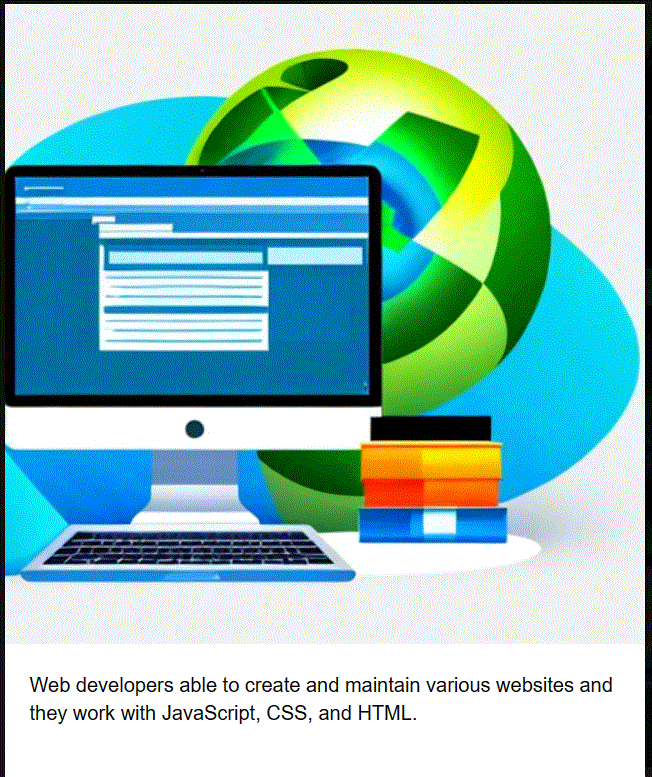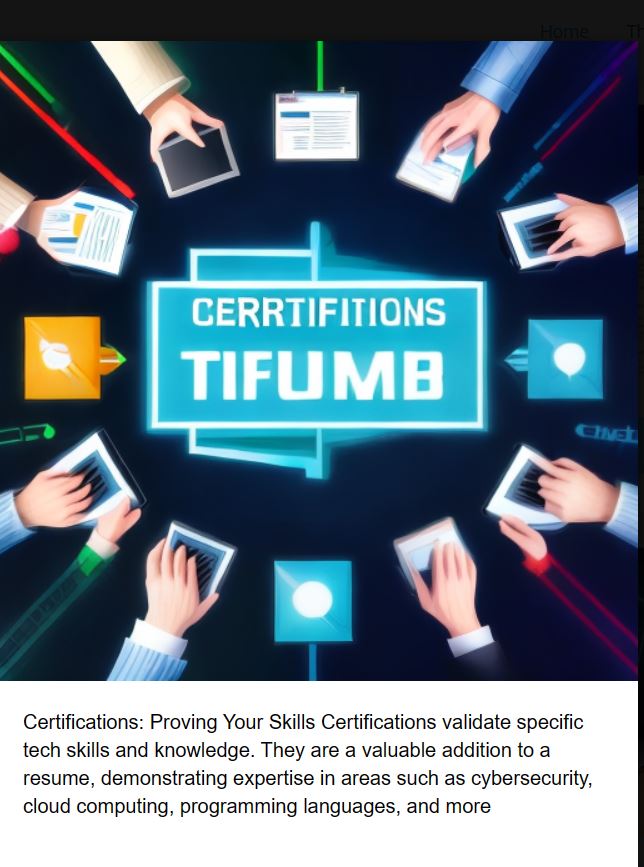


Entry Level Tech Jobs
Introduction
Entry level Tech jobs have transformed into the doorway to a world of invention, creativity, and limitless potential in the rapidly changing world of technology. The tech sector is still expanding and presents a wide range of options for tech enthusiasts, recent graduates, and career changers alike. In this thorough guide, we’ll set off on a tour across the world of entry-level tech careers. From understanding the current job market to honing your skills and facing interviews, this guide will equip you with the knowledge and confidence to kickstart your digital career.
Entry-level tech jobs covers a wide range of jobs that necessitate a firm grounding in technology. The majority of applicants for these positions ought to have little to no prior work experience in the technology industry. In the technology sector, entry-level jobs serve as stepping stones for later professional growth.
Why Entry-Level Tech Jobs Matter
Entry-level tech jobs are more critical than ever. The tech industry is thriving, with a constant demand for skilled professionals. These positions present a special chance for people to enter a vibrant, rapidly changing labor sector with enormous growth potential. They act as the cornerstone on which tech professions are constructed.
The Exciting Landscape of Tech
The technology industry is a vibrant, ever-evolving topic that presents a wide range of opportunities and advancements. Artificial intelligence, blockchain, cybersecurity, cloud computing, and the Internet of Things (IoT) are upcoming technological trends. These advancements promise exciting prospects for those entering the tech job market.
Key Skills for Success in Entry-Level Tech Jobs
The Tech Toolkit: Essential Technical Skills To excel in entry-level tech positions, individuals must possess essential technical skills such as programming languages, software development, database management, and networking. These skills form the foundation of their ability to contribute effectively in tech roles.
Critical Thinking and Problem-Solving
Critical thinking is the ability to analyze situations and make informed decisions. These are essential skills that empower individuals to navigate challenges in the tech industry. Problem-solving is at the core of tech jobs. Tech professionals are often tasked with identifying and resolving issues.
Power of soft skills
While technical skills are crucial, soft skills like communication, adaptability, teamwork, and time management are equally vital in the tech world. Effective communication fosters collaboration, adaptability enables professionals to embrace change, and strong teamwork ensures projects are executed seamlessly.
Exploring Common Entry-Level Tech Roles
Software Developer: The creation, testing, and maintenance of software programs are within the purview of software developers. They are crucial in transforming concepts into useful software products. Software developers are in very high demand, making them sought-after candidates for entry-level tech positions.
IT Support Specialist: IT support specialists provide technical assistance and support to end-users and organizations. They troubleshoot hardware and software issues, ensuring that technology functions smoothly. This role is critical to maintaining the efficiency of the tech infrastructure.
Data Analyst: Data analysts gather, analyze, and interpret data. They use a variety of statistical and programming skills. Data analysts are in high demand in the era of big data, and their work has a significant impact on corporate strategy and outcomes.
Quality Assurance Tester: Software and hardware quality assurance testers make sure that all technological products live up to expectations and meet quality requirements. They play a pivotal role in delivering flawless products to customers, reducing errors and defects.
Web developer: Web developers are able to create and maintain various websites, and they work with JavaScript, CSS, and HTML.
Cybersecurity Analyst: Cybersecurity analysts defend networks and computer systems from online threats. They employ a range of security methods and tools.
UX/UI Designer: Designers of user experiences (UX) and user interfaces (UI) concentrate on producing intuitive and aesthetically pleasing digital interfaces. They improve the user experience as a whole, making them essential for the creation and design of digital products.
DevOps engineer: DevOps engineers automate the software development, testing, and deployment processes. They utilize a range of equipment and technology.
Product manager: Product managers are in charge of a product’s success. To establish the product requirements, create the product roadmap, and launch the product, they collaborate with a range of stakeholders.
Business Analyst: Business analysts gather and analyze business requirements to develop solutions. They collaborate with a range of stakeholders to comprehend the needs of the organization and find solutions that address those needs.
Full-stack developers are in charge of creating both the front end and the back end of websites and software programs. They utilize a range of technologies and programming languages.
Educational Path to Entry-Level Tech Jobs
An engineering degree in computer science is a classic and well-known pathway into the tech sector. It offers a thorough education in computer science concepts and technical abilities, preparing graduates for a variety of technical positions.
Alternative Learning Paths: Bootcamps and Online Courses provide intensive, specialized training in particular computer skills. They are an appealing choice for those looking for a quicker entry into the IT job market because they are frequently shorter and more economical than standard degree programs.
Certificates: Demonstrating Your Competence Specific technical knowledge and skills are verified by certifications. They add value to resumes by highlighting knowledge of disciplines like cybersecurity, cloud computing, programming languages, and more.
Building a Standout Tech Portfolio: Personal Projects, Your Creative Playground Personal technology projects provide an opportunity to apply and showcase skills. They can range from producing websites and mobile applications to participating in open-source initiatives.
Part-time Jobs and Internships: These positions offer hands-on training in today’s technological environments. They provide useful insights into corporate practices, networking opportunities, and a chance to apply what is learned in the classroom to actual scenarios.
Contributions to Open Source: Collaboration with other tech enthusiasts from around the world is made possible by joining the Global Tech Community and contributing to open-source projects. It exhibits dedication to the tech industry, highlights problem-solving skills, and enhances the legitimacy of one’s tech resume.
Making an Impactful Resume: Tech Job Market Navigation Techniques A tech-focused resume should emphasize pertinent experiences, abilities, and projects. It’s crucial to modify the resume for each job application, highlighting your credentials.
The Art of Job Hunting: Online Platforms and Beyond Job hunting in the tech industry extends beyond traditional job boards. Exploring online platforms, attending virtual job fairs, and leveraging personal connections are effective strategies for uncovering tech job opportunities.
Mastering the Tech Interview: Preparing for Technical Interviews Technical interviews typically assess coding skills, problem-solving abilities, and technical knowledge. Preparation involves practicing coding challenges, reviewing data structures and algorithms, and honing problem-solving skills.
Interview simulations: your secret weapon Mock interviews offer a secure setting for interview technique development and constructive criticism. They increase people’s chances of success by helping them gain confidence and improve their interviewing techniques.
Behavioural interviews: Focus on assessing soft skills and cultural fit. Candidates should be prepared to provide examples of past experiences, demonstrating how they’ve effectively navigated challenges, collaborated in teams, and adapted to change.
Beyond Salary Expectations: Salary Negotiation for Entry-Level Tech Setting reasonable compensation expectations requires knowledge of normal pay ranges for entry-level technical professions. Depending on criteria including geography, skill level, and industry, salaries can vary greatly.
Beyond the pay check: benefits and perks. Tech companies often offer more benefits and incentives than salary. These include flexible work arrangements, health benefits, professional development opportunities, stock options, and more.
Negotiation: Negotiating a job offer is a critical step in securing the best compensation package. Strategies for successful negotiation include researching industry standards,
First Steps: Onboarding and Developing Early days at your new job The onboarding process sets the tone for a successful tech career. In the early days of a new job, individuals can expect to receive orientation, receive training, and become familiar with the company’s culture and policies.
The importance of mentorship: mentorship plays a vital role in career growth. Having a mentor can provide guidance, support, and valuable insights into the tech industry. Seeking continuous learning and mentorship accelerates professional development.
Navigating challenges gracefully Challenges are natural in any job. In technology, challenges can include tight deadlines,
Conclusion:
In conclusion, your journey into the tech industry begins with entry-level positions, but it doesn’t end there. Embrace the opportunities, challenges, and growth that the tech world offers. Your path in this dynamic industry is bound to be filled with innovation, learning, and endless possibilities.
Additional information for finding entry-level tech jobs is provided below:
If you don’t get your dream job immediately, don’t give up. Maintain your job applications and contacts in the tech sector. Be flexible. Be willing to relocate or work for a smaller company.
FAQs
(Q) Which entry-level IT positions are in the highest demand?
The top entry-level tech positions are
- Software Engineer
- Web Developer
- Data Analyst
- Cybersecurity Analyst
- IT Support Specialist
- DevOps Engineer
- Quality Assurance Tester
- Product Manager
- Business Analyst
- UI/UX Designer
- Full-Stack Developer
(Q) What training and educational requirements must I meet to start a tech profession at the entry level?
Depending on the exact role, a variety of skills and qualifications will be required for entry-level tech jobs. Some of the most crucial ones are as follows:
- Technical skills: You should have some basic knowledge of programming languages, software development, or other technical skills.
- Problem-solving skills: You should be able to identify and solve problems.
- Communication skills: You should be able to communicate effectively with technical and non-technical audiences.
- Teamwork skills: You should be able to work well as part of a team.
- Learn-on-the-job skills: You should be willing and able to learn new things quickly.
(Q) How can I get a tech career at entry level?
You can take the following actions to improve your chances of finding an entry-level tech position:
- Network with people in the tech industry. It is better to attend tech meetups, hackathons, and conferences. Connect with people on LinkedIn.
- Get involved in open-source projects. This is a great way to gain experience and build your portfolio.
- Take online courses and tutorials. There are many free and paid online courses available to learn new skills.
- Build a strong resume and portfolio. Your resume and portfolio should showcase your skills and experience.
- Practice your interviewing skills. The tech interview process can be challenging. Practice answering common interview questions.
(Q) What are some of the challenges of landing an entry-level tech job?
It can be difficult to find an entry-level tech job because there is tremendous competition. Among the difficulties are
- The number of qualified applicants is high.
- The tech interview process can be challenging.
- The salaries for entry-level tech jobs are not as high as they used to be.
(Q) What are the advantages of getting an entry-level tech career offer?
The following are some advantages:
- The opportunity to learn new skills and advance your career
- The chance to work on cutting-edge technologies.
- The potential for high salaries and job security
- The ability to work in a fast-paced and innovative environment
(Q) What are some mistakes individuals make when submitting resumes for entry-level tech positions?
The following are some mistakes:
- Not having a strong resume or portfolio.
- Not networking with people in the tech industry.
- Not being prepared for the interview.
- Not being persistent.
(Q) What are some ways to network in the tech industry?
Here are some ways to network in the tech industry.
- Attend tech meetups and conferences.
- Connect with people on LinkedIn.
- Volunteer for open-source projects.
- Reach out to people you admire in the tech industry.
- Attend industry events.
(Q) What are some of the best resources for learning new tech skills?
Here are some of the best resources for learning new tech skills.
- Online courses and tutorials
- Tech books and magazines
- Hackathons and boot camps
- Online forums and communities
- Mentorship programs.
(Q) What are some of the best ways to prepare for a tech interview?
Here are some of the best ways to prepare for a tech interview:
- Practice answering common interview questions.
- Research the company and the position you are interviewing for.
- Be prepared to talk about your skills and experience.
- Dress professionally.
- Be confident.
(Q) What are some ways to stand out from the competition when applying for an entry-level tech job?
- Have a strong resume and portfolio.
- Network with people in the tech industrya.





